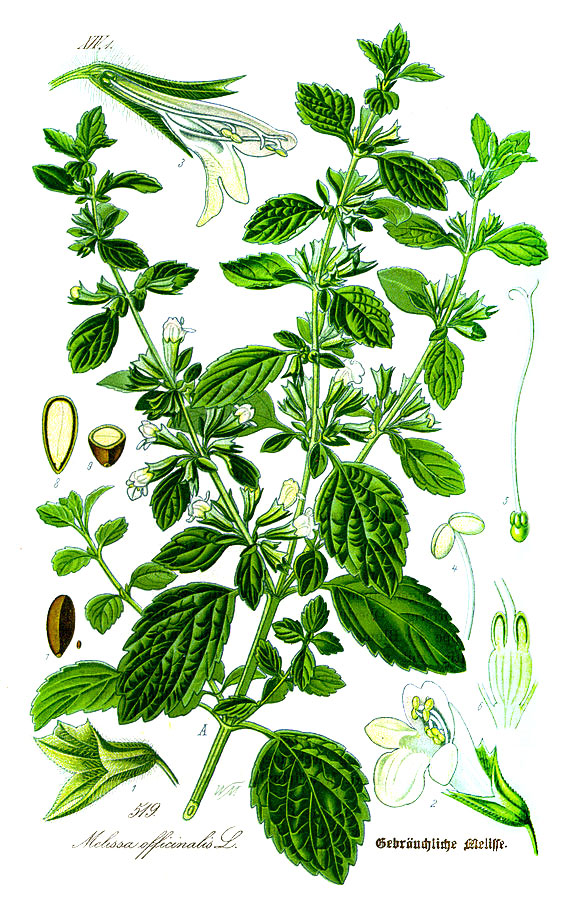Lemon Balm (Melissa)

Origin: South-central Europe, the Mediterranean Basin, Iran, and Central Asia
Family: Lamiaceae
Scientific Name: Melissa officinalis
Folk Names: Balm, bee balm, common balm, honey plant, lemon balsam, Melissa, sweet balm, sweet balsam, sweet Melissa
Magical
Element: Water
Day: Monday
Planet: Moon
Zodiac: Cancer
Associated Celebrations:
Deities: Artemis, Diana, Hecate, Kupala, Selene
Magical Properties: Healing (especially of emotional problems), fertility, comforting, love, success, harmony
Lore
- Pliny the Elder claimed that the healing powers of lemon balm were so great that if it was attached to a sword that had made a wound, the blood would be immediately staunched.
- Nicholas Culpeper associates lemon balm with Jupiter and Cancer. He lists it for a myriad of medicinal uses, but also notes that “Serapion says, it causes the mind and heart to become merry, and revives the heart, faintings and swoonings, especially of such who are overtaken in sleep, and drives away all troublesome cares and thoughts out of the mind”.
Magical Uses
- Carry lemon balm to help find love.
- Use lemon balm in healing incenses and sachets, particularly to encourage the healing of wounds.
Aromatherapy
Part Used: Flowers
Extraction Method: Steam distillation
Flash Point: 79°C
Scent Type: Citrus
Perfume Note: Middle
Scent Description: Fresh, lemon-y scent
Aromatherapeutic Uses
Lemon balm is calming and uplifting. Can be helpful with anxiety, depression, nausea, headaches. Lemon balm is also anti-fungal.
Blends well with: Basil, frankincense, lavender
Warnings:
May cause skin irritation and sensitisation, dilute double for topical application.
In the Garden
Type: Perennial
Sow: Spring
Light: Medium light
Water: Keep moist
Soil: Rich
Companion Planting: Lavender.
Tips:
- Don’t water much over winter
